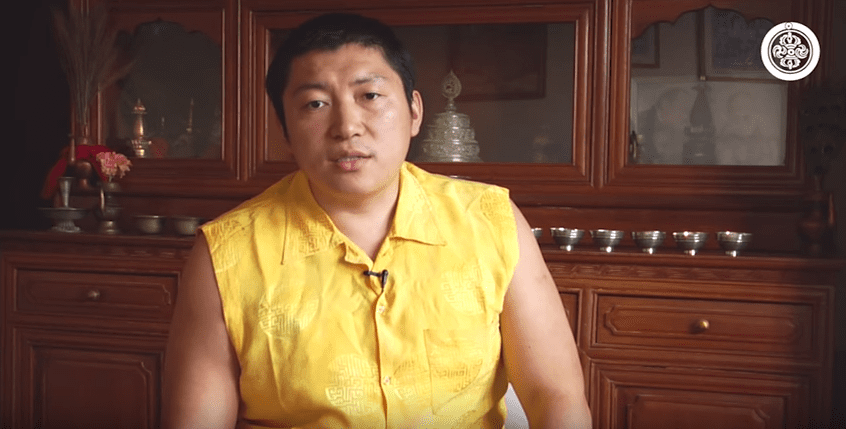Phakchok Rinpoche
Phakchok Rinpoche was born in 1981 to Kyapjé Tsikey Chokling Rinpoche and Sangyum Dechen Paldrön, within the family lineage of the great treasure revealer (terchen) Chokgyur Dechen Zhikpo Lingpa. Rinpoche was recognized as the reincarnation of the 6th Kyapgön Phakchok Rinpoche, one of the three throne holders (kyapgöns) of the Taklung Kagyü seat (densa) at Marthang Kham Riwoche monastery. Among Rinpoche’s previous incarnations, the 4th Kyapgön Phakchok Rinpoche was a devoted disciple and patron of Terchen Chokgyur Lingpa. During that period, it was the unwavering support of the upholders of Riwoche Monastery that created the auspicious circumstances for Chokgyur Lingpa’s awakened activity to spread and flourish.
Under the guidance of his root gurus—Kyapjé Tulku Urgyen Rinpoche, Kyapjé Nyoshul Khen Rinpoche, and Kyapchok Soktse Rinpoche—Phakchok Rinpoche has received and practiced the profound Dharma teachings handed down in an unbroken lineage from Mahaguru Padmasambhava. Inspired by the life and legacy of Guru Padmasambhava, Terchen Chokgyur Lingpa and the upholders of Riwoche Monastery, Rinpoche has devoted his own life to spreading the teachings of Guru Rinpoche, particularly the Profound Treasures of Chokgyur Lingpa (Chokling Tersar).
Mahaguru Padmasambhava is renowned for his role in guiding the establishment of Samye Monastery, thereby creating the auspicious causes and conditions (tendrel) for more than a thousand years of authentic practice to unfold in the land of Tibet in an incredible lineage of accomplishment that continues to this present day. Reflecting upon these auspicious beginnings, Phakchok Rinpoche has given his organization the same name, Samye, which means inconceivable. Just as this ancient Tibetan institution lived up to its name, becoming a truly inconceivable source of the Buddhadharma, Rinpoche’s aspiration is for today’s Samye mandala to do likewise and become an inconceivable beacon of wisdom, compassion and dignity for our present world and into the future.
In honor of Mahaguru Padmasambhava, Rinpoche has chosen a seal to represent Samye that traces back to Guru Rinpoche himself. This esteemed emblem was originally revealed by the Mahaguru and given to Dharma King Trisong Detsen’s royal heir, Lhasé Murup Tsenpo. Murup Tsenpo subsequently concealed it as a treasure (terma) for the benefit of future generations. Much later, in 18th century Tibet, it was discovered as a treasure by Lhasé Murup Tsenpo’s reincarnation, Terchen Chokgyur Dechen Zhikpo Lingpa. Today, it serves as the emblem for the Profound Treasures of Chokgyur Lingpa and for all Dharma activities led by Phakchok Rinpoche and his sangha.
All Posts










Responses
This exactly what I do! Thank you Precious Rinpoche _/|\_